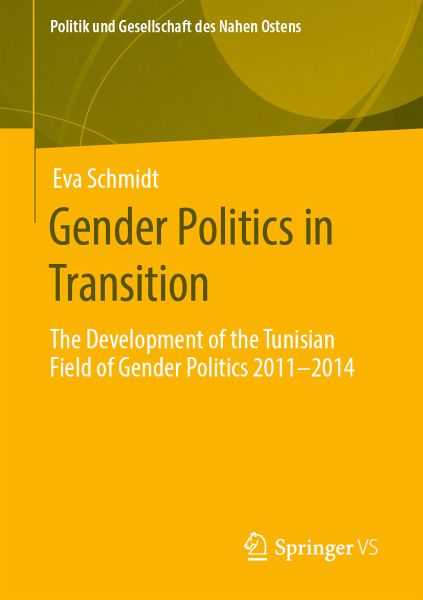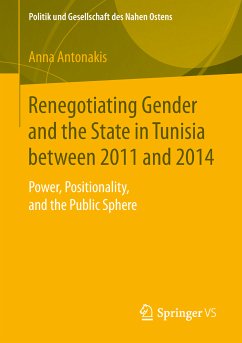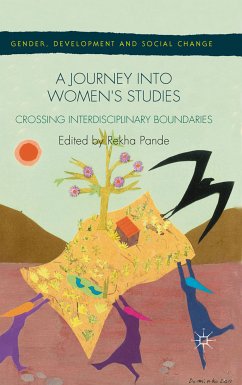
Gender Politics in Transition (eBook, PDF)
The Development of the Tunisian Field of Gender Politics 2011 -2014
Versandkostenfrei!
Sofort per Download lieferbar
68,95 €
inkl. MwSt.
Weitere Ausgaben:

PAYBACK Punkte
34 °P sammeln!
Eva Schmidt analyses how power relations, ideas, and institutions in Tunisian gender politics changed during the democratisation process 2011-2014. Her analysis of gender politics offers a productive lens to understand the course of the Tunisian transition. As gender policies are integral to Tunisian national identity, they became a major battlefield in the fight for political inclusion and exclusion. In this context, liberal and leftist feminists accessed the decision-making institutions and enhanced the existing women's rights legislation. Yet the intertwinement of modernist nationalism with...
Eva Schmidt analyses how power relations, ideas, and institutions in Tunisian gender politics changed during the democratisation process 2011-2014. Her analysis of gender politics offers a productive lens to understand the course of the Tunisian transition. As gender policies are integral to Tunisian national identity, they became a major battlefield in the fight for political inclusion and exclusion. In this context, liberal and leftist feminists accessed the decision-making institutions and enhanced the existing women's rights legislation. Yet the intertwinement of modernist nationalism with women's rights also limited the scope for feminist demands. This book contributes a unique case study to political transitology and advances an original theoretical approach based on Bourdieu's theory of the political field.
Dieser Download kann aus rechtlichen Gründen nur mit Rechnungsadresse in A, B, BG, CY, CZ, D, DK, EW, E, FIN, F, GR, HR, H, IRL, I, LT, L, LR, M, NL, PL, P, R, S, SLO, SK ausgeliefert werden.












